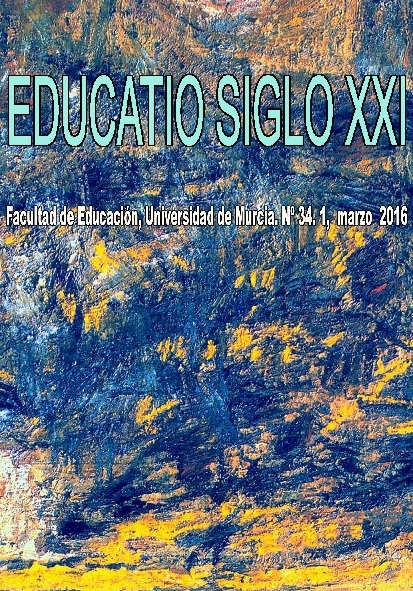The musical dramatization of the Spanish ballads in Primary Education as a tool for developing social and civic competences
Abstract
The persistence of a behaviorist methodology with traditional roots, supported by specialized teaching of subjects arranged in a deliberately disjointed manner, decreases any possible realization of interdisciplinary projects aimed at the creation of an integrated curriculum. It also impedes the proper development of basic competences set in the current educational context of European convergence. In this sense, an intertextual methodology connecting poetry and music, through musical dramatizations inspired in romances from the Spanish anthology Flor nueva de romances viejos, by Ramón Menéndez Pidal, with music by the folklorist Joaquín Díaz González, is presented in the areas of Art Education and Spanish language and Literature of Primary Education. The main aim of this project is to develop social and civic competences. The social, cooperative, expressive, communicative and playful nature of the musical ramatization, as a pedagogical tool, encourages students to improve their social skills, motional development, committed and responsible teamwork, critical understanding of the reality represented, a respectful and supportive dialogue and, ultimately, the pursuit of peaceful and democratic coexistence, in connection with the purposes pursued in the acquisition of social and civic competences.
Downloads
-
Abstract1538
-
Sin título (Español (Espa...791
Original work publishes in this journal is subject to the following terms:
1. Murcia University Press (the publishing house) holds the copyright of the publishes work, and favours and allows their reutilization under the use license stated in point 2.
© Servicio de Publicaciones, Universidad de Murcia, 2015
2. Work is published in the electronic edition under a license (Creative Commons Reconocimiento-NoComercial-SinObraDerivada 4.0 España (legal text). They can be copied, used, disseminated, transmitted and publicly presented, as long as: i) authorship and original publication source is acknowledged (journal, publishing house and URL of the work); ii) are not used for commercial purposes; iii) the existence and specifications of this use license is stated.
3. Conditions for self-archive. Authors are allowed and encouraged to disseminate electronically the pre-pint (before review) and/or post-print (accepted for publication) versions of their work before their publication since that favours earlier circulation and dissemination resulting in an increased chance for the authors to be cited and for the work to reach a bigger share of the academic community. Colour: RoMEO: green.







